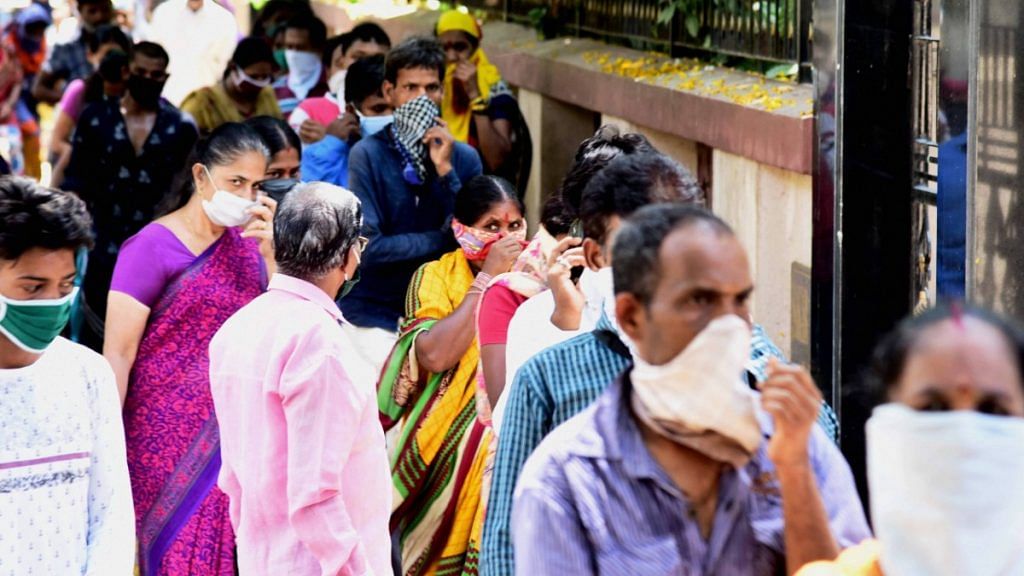New Delhi: The Covid-19 pandemic has dealt a body blow to state finances and it is likely to leave lasting scars on federalism in India, the Reserve Bank of India (RBI) said Tuesday.
In a report on state finances for the year 2020-21, the RBI warned that states could be caught up in a vicious circle of being forced to cut capital spending leading to “growth losses”.
It estimated that the average gross fiscal deficit as a percentage of the gross domestic product of all states could be 4 per cent as against the initially budgeted 2.8 per cent.
Most of the states presented their budget in February and March, much before the pandemic impacted India and consequently the finances.
“With states at the forefront of the fight against the pandemic, their finances have taken a body blow in the first half of 2020-21,” the report said.
“Given the clear interlinkages between growth and tax revenues and considering the fact that tax revenues fall faster than GDP when growth is negative, tax revenues are likely to be reduced for the next few years,” it added.
Also read: RBI’s MPC is now decidedly more dovish, the consensus on ‘lower for longer’ rates is proof
‘Vicious cycle of growth loss’
The central bank pointed out that a rise in contingent liabilities may force states to put investment projects on hold.
“In this milieu, state governments may have to face the difficult choice of putting investment projects on hold, but, given the multiplier associated with capital spending, this will inevitably entail growth losses in a vicious circle feeding itself.”
The pandemic could lead to lower discretionary spending or higher taxation in future, RBI further said.
“States’ indebtedness is set to rise, and if it is not accompanied by an acceleration in growth, fiscal sustainability will become the casualty, overwhelming the modest gains of the prudence in recent years,” it said.
The report also pointed out how different sources of revenues of states have been hit while expenditures have risen sharply.
States had budgeted for higher tax collections in the current fiscal in expectation of a recovery in economic activity after a growth slowdown in 2019-20. However, the pandemic threw the Indian economy into its worst ever contraction.
The Indian economy contracted by 23.9 per cent in the April-June quarter of 2020-21 and is forecast to contract by 9.5 per cent in the current fiscal.
“It is increasingly certain that the slump in economic activity due to COVID-19 led lockdown will adversely impact states’ revenue collections,” RBI said.
Also read: Future rate cuts depends on moderation in inflation, says RBI Governor Shaktikanta Das
GST hit
The report pointed out how state Goods and Service Tax (GST) collections have plummeted 47 per cent in the April-June quarter. It also pointed out how states will receive less money this year from central tax transfers.
“Given that a large shortfall in the divisible pool is highly likely in 2020-21, central tax transfers to states could fall by a significant margin,” RBI said.
Of the total revenue receipts of states, central tax transfers comprise 25 to 29 per cent, while state tax revenues have a share of 45 to 50 per cent, RBI said.
The central bank also warned that the financial position of state-owned power distribution companies is likely to worsen further with the pandemic related lockdown impacting power demand, particularly in the lucrative industrial and commercial segments. It also added that uncertainty prevails over the issue of GST compensation.
Also read: Centre to borrow up to Rs 1.1 lakh crore on behalf of states to bridge GST shortfall
